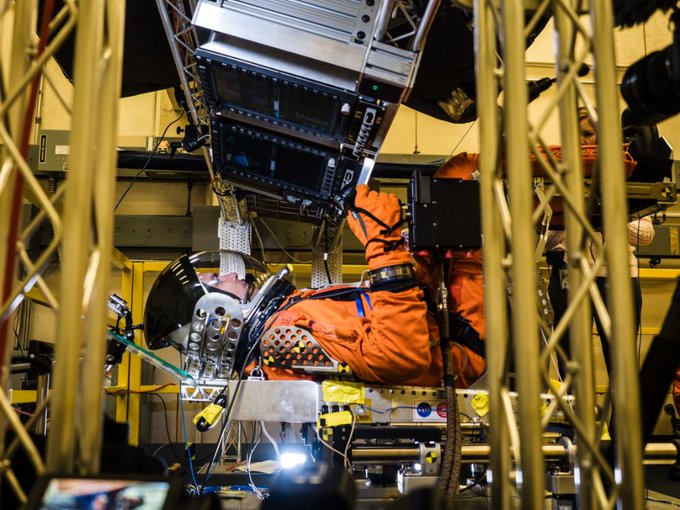NASA weighs risks of adding crew to Orion spacecraft’s maiden moon flight ~hehe OMFG WTF r ALLLLL those "UFO'S" use`in ta "fly" the fuck around UP THERE & we r ta "believe" that these fucking roman candles we's got is the ...fucking answer jeezus h fucking me ...only in A~meeery~ka kooky's ville land of the dum~dead drug filled nit wit brain dead fucks ~ ville could "they" pull this SHIT the fuck off LOL ...fucking boo~tle rockets from the 60's ...that's the best we got ...the fucking best we's can cum the fuck UP wit ...boo~tle rockets ... fucking fuck me OMG millions have seen the fucking things (UFO's) & i fucking know i only grad~u~ain'ted 249 outta 251 but fucking fuck me ...i mean FUCK LOL boo~tle rocket's from the 60's & how much is this costing U.S. ??? ....i "wonder" can u boo~tle "swamp gas" ...

NASA is studying the feasibility of sending a manned crew on the
maiden flight of the deep-space Orion spacecraft, which is hoped to
eventually bring astronauts to Mars. A report on the matter is to be
prepared by early spring.
During a media teleconference
on Friday the agency revealed that it intends to have initial findings
out in a “pretty polished format” in a month’s time on how workable it
is to add a crew to the Exploration Mission-1 (EM-1). The mission is
meant to test the Space Launch System (SLS) / Orion Spacecraft
combination in a moon flyby.
The original mission was to launch an unmanned Orion craft around the moon and back in 2019 before launching a manned mission around 2021.
Astronauts experience a simulated launch to deep space on our @NASA_Orion spacecraft & powerful @NASA_SLS rocket: http://go.nasa.gov/2lDEOjK
If
a crew is carried on the first integrated flight of NASA’s SLS rocket
and Orion spacecraft, it will coincide with the 50th anniversary of
Apollo 11 - the US’s first manned mission to land on the moon.William Gerstenmaier, associate administrator of NASA’s Human Explorations and Operations Mission Directorate in Washington and William Hill, deputy associate administrator for Exploration Systems Development in Washington fielded questions from the press about this historic possibility but made it clear that they received no specific guidance on schedule or budget.
IMAGE
NASA is calling on team members not directly associated with the Orion program for assistance on the feasibility study.
The priority is to ensure it can be done while limiting the potential risks to the crew’s safety, according to NASA.
“It will not necessarily be a standalone study,” the administrators said, noting that regardless of the decision they still have an exciting mission ahead. “There’s benefits either way.”
Orion is built to take astronauts farther into the solar system than ever before and is intended to help NASA prepare for missions to Mars. Its first test flight took place in 2014, but it used the Delta IV Heavy rocket rather than the Space Launch System as the launch vehicle.


No comments:
Post a Comment